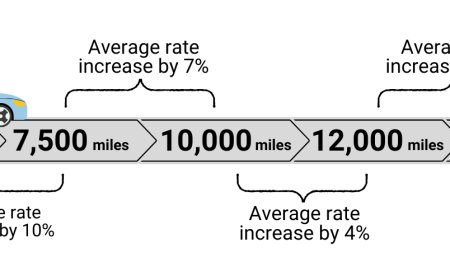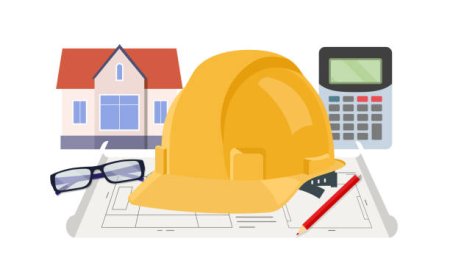Why Guest Satisfaction Scores Improve with Proactive Help Desk Support
Discover how proactive help desk support can significantly enhance guest satisfaction scores in the hospitality industry by minimizing downtime, resolving issues swiftly, and creating a seamless guest experience.

In today’s hyper-competitive hospitality landscape, guest satisfaction isn’t just a metric—it’s a lifeline. Online reviews, repeat business, and brand reputation all hinge on the quality of your guest experience. While factors like amenities, cleanliness, and customer service are key, there's another often-overlooked contributor to a great stay: proactive help desk support.
From resolving technical glitches to ensuring seamless communication between departments, a well-functioning help desk plays a silent but crucial role in guest satisfaction. In this blog, we’ll explore how hospitality brands can use proactive support systems to consistently exceed guest expectations—and improve satisfaction scores across the board.
1. The Shift from Reactive to Proactive Support
Traditional help desks often operate on a reactive model: wait for an issue, then resolve it. While this approach works in some industries, hospitality demands real-time, preemptive solutions. Guests expect flawless service, whether it's room Wi-Fi, TV streaming, mobile check-ins, or keyless room entry. Any downtime or delay translates directly into frustration.
Proactive help desk support identifies potential issues before they impact the guest. Whether through system monitoring, predictive analytics, or automated ticket generation, these systems minimize disruption and ensure that guests enjoy a seamless, tech-enhanced stay.
2. Faster Resolution Times = Happier Guests
One of the clearest ways proactive help desk support impacts guest satisfaction is speed.
Imagine a guest at a luxury hotel calling the front desk because the thermostat isn’t working. A reactive support model might take hours to diagnose and resolve the issue. A proactive model, however, may already have flagged the room’s HVAC system as underperforming and dispatched a technician—before the guest even noticed the problem.
This leads to:
-
Fewer complaints
-
Shorter resolution times
-
Higher satisfaction
Hotels that utilize centralized help desks with remote capabilities often see faster ticket closures, even for tech-heavy rooms and smart amenities.
3. Reducing Staff Burden = Better Service for Guests
Frontline hotel staff are often overwhelmed—especially during peak seasons. Without dedicated help desk support, IT and maintenance issues end up in their laps, distracting them from their primary goal: serving guests.
By offloading technical issues to a proactive help desk, hotels enable staff to focus on hospitality rather than troubleshooting. This directly benefits the guest experience by:
-
Reducing wait times at the front desk
-
Improving the accuracy of service
-
Boosting staff morale and professionalism
A calm, competent team delivers a better stay—and guests notice.
4. Ensuring Operational Uptime
In an era of contactless check-ins, digital menus, and smart room controls, operational uptime is everything. If a kiosk crashes or a mobile key doesn’t work, it creates friction.
Proactive support ensures maximum uptime by:
-
Monitoring network performance
-
Tracking hardware health
-
Updating software systems overnight
This reduces the number of incidents guests experience—and increases their perception of your hotel’s reliability.
5. Gathering Real-Time Feedback for Continuous Improvement
Modern help desk systems do more than just resolve tickets—they gather data. With feedback loops built into the process, hospitality IT teams can:
-
Spot patterns in complaints
-
Identify recurring failures
-
Resolve root causes proactively
For example, if multiple rooms on a particular floor report Wi-Fi connectivity issues, the help desk can preemptively escalate the issue and notify engineering—before the problem hits more guests. Over time, this feedback leads to better infrastructure and smoother operations, which are reflected in rising guest satisfaction scores.
6. Creating a Sense of “Always-On” Service
In hospitality, perception is reality. Even if a problem is minor, guests want to feel heard and supported instantly.
Proactive help desks often feature:
-
Automated alerts and chatbots
-
24/7 support availability
-
Multilingual communication
This creates the impression of a brand that is always listening, always ready to help. When guests feel supported, even during issues, they’re more likely to leave positive feedback.
7. Supporting a Personalized Guest Experience
The best hospitality help desks aren’t just IT hubs—they’re part of the guest journey. Integrated systems allow for guest data visibility, so support teams can provide more personalized, contextual assistance.
For example:
-
Knowing a guest’s previous tech preferences
-
Automatically adjusting room tech to their profile
-
Providing tailored solutions based on stay history
This elevates the experience beyond standard service into hospitality desk support—a subtle but significant driver of loyalty and satisfaction.
8. Case Study Example: Boosting Satisfaction at a Mid-Size Resort
A 2023 case study revealed how a 120-room resort in Florida increased guest satisfaction scores by 28% in six months after switching to a proactive help desk support model.
Here’s how they did it:
-
Introduced automated ticket generation based on IoT sensors
-
Implemented 24/7 virtual support for in-room technology
-
Integrated support data with guest CRM for personalized responses
The result? Fewer complaints, quicker fixes, happier guests—and better online reviews.
9. Positive Reviews = Higher Revenue
Guest satisfaction scores aren’t just a feel-good metric—they directly affect revenue. According to ReviewPro, a one-point increase in a hotel's Global Review Index can lead to a 0.89% increase in ADR (Average Daily Rate).
Proactive help desk support improves the digital guest experience, reducing frustrations and increasing positive reviews on platforms like TripAdvisor and Google. These reviews, in turn, help attract more bookings and justify premium pricing.
Conclusion
In a tech-powered hospitality world, guest satisfaction is no longer just about how well your staff smiles or how fresh the sheets are. It's also about how seamlessly your technology works—and how quickly issues are resolved when things go wrong.
By investing in proactive help desk support, hotels and resorts can ensure:
-
Fewer disruptions
-
Happier guests
-
Higher satisfaction scores
-
Better online reputation
Whether you run a boutique hotel or a sprawling resort chain, it's time to stop thinking of help desks as a back-office necessity—and start seeing them as strategic tools that directly enhance the guest journey.








































